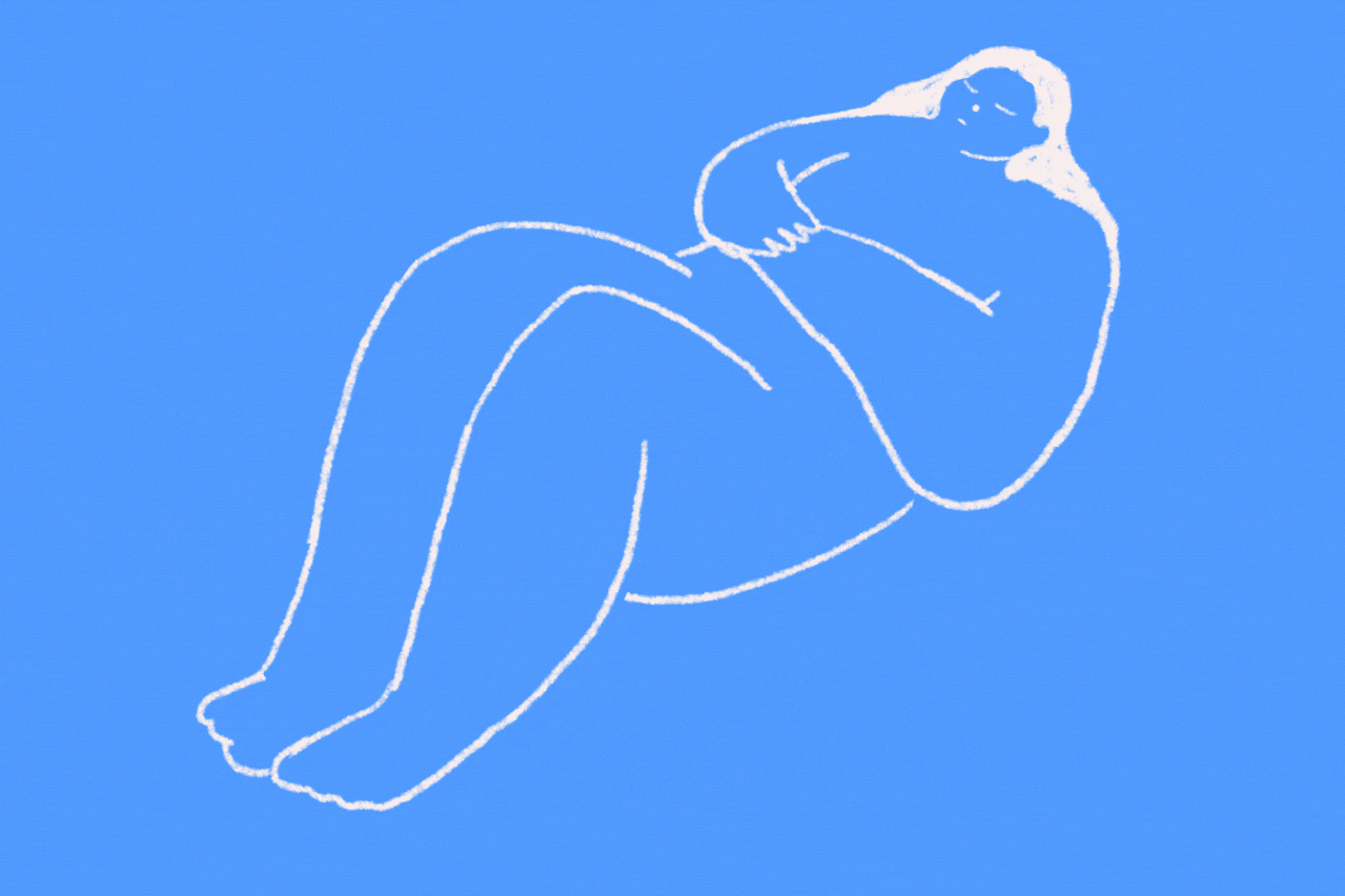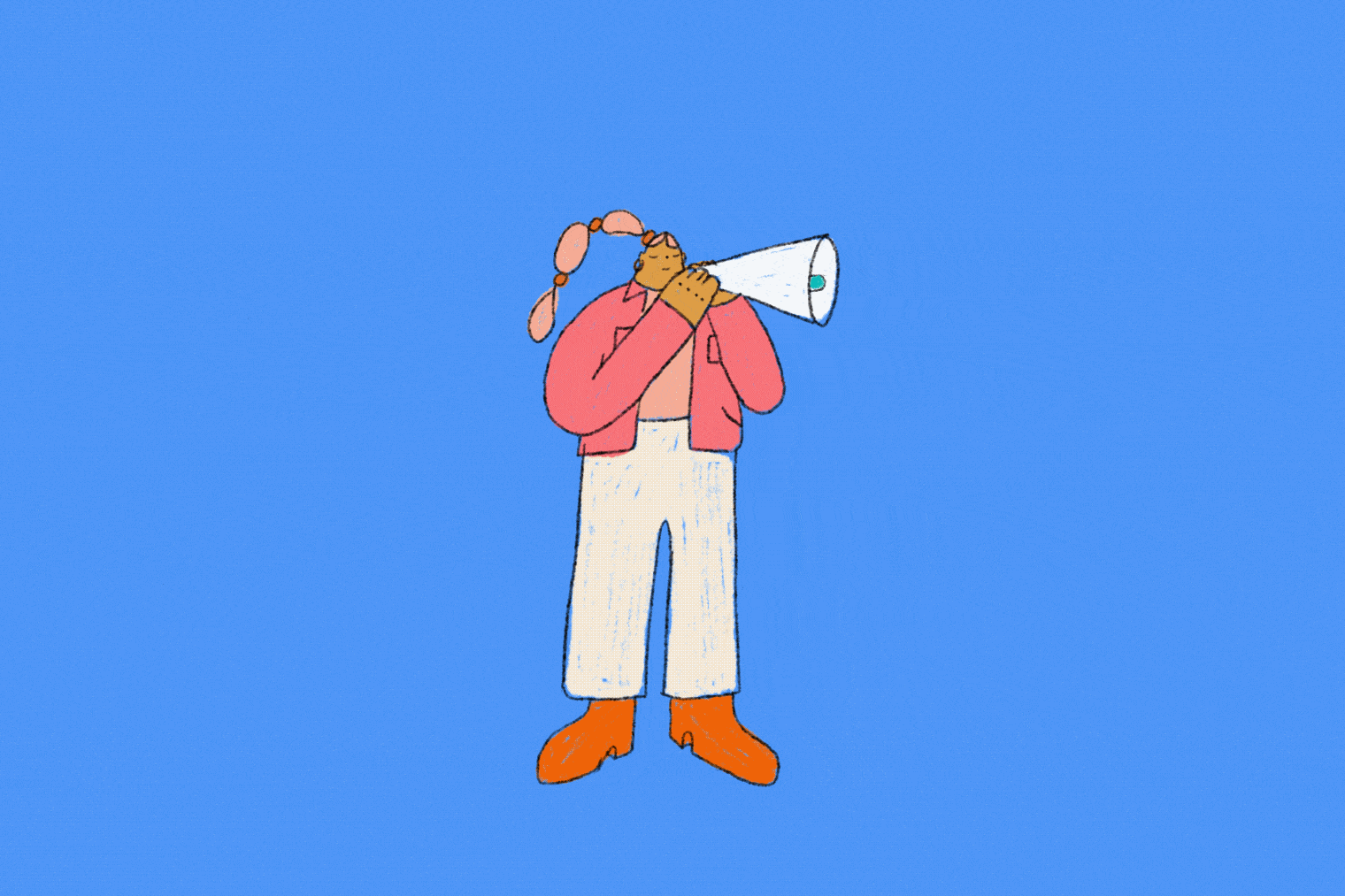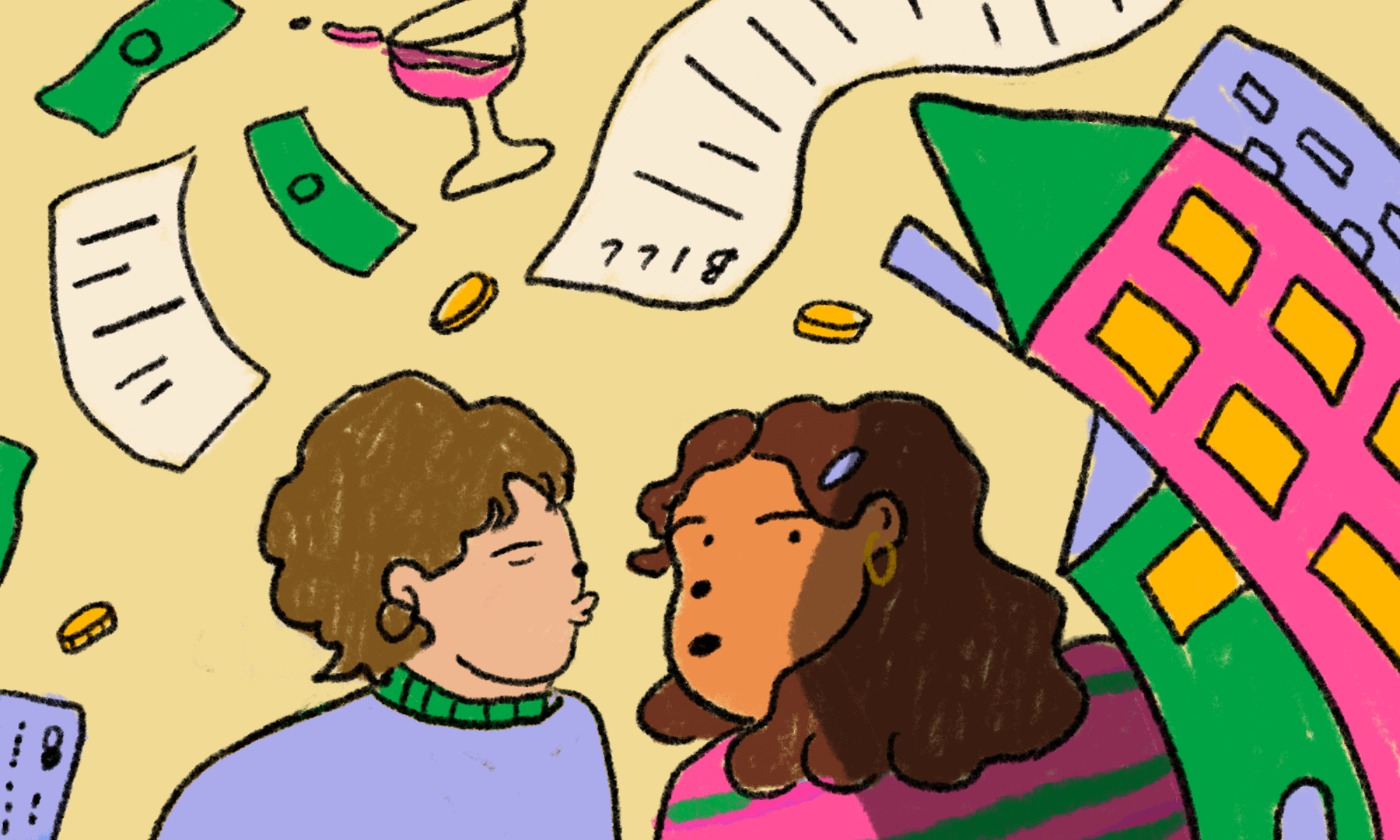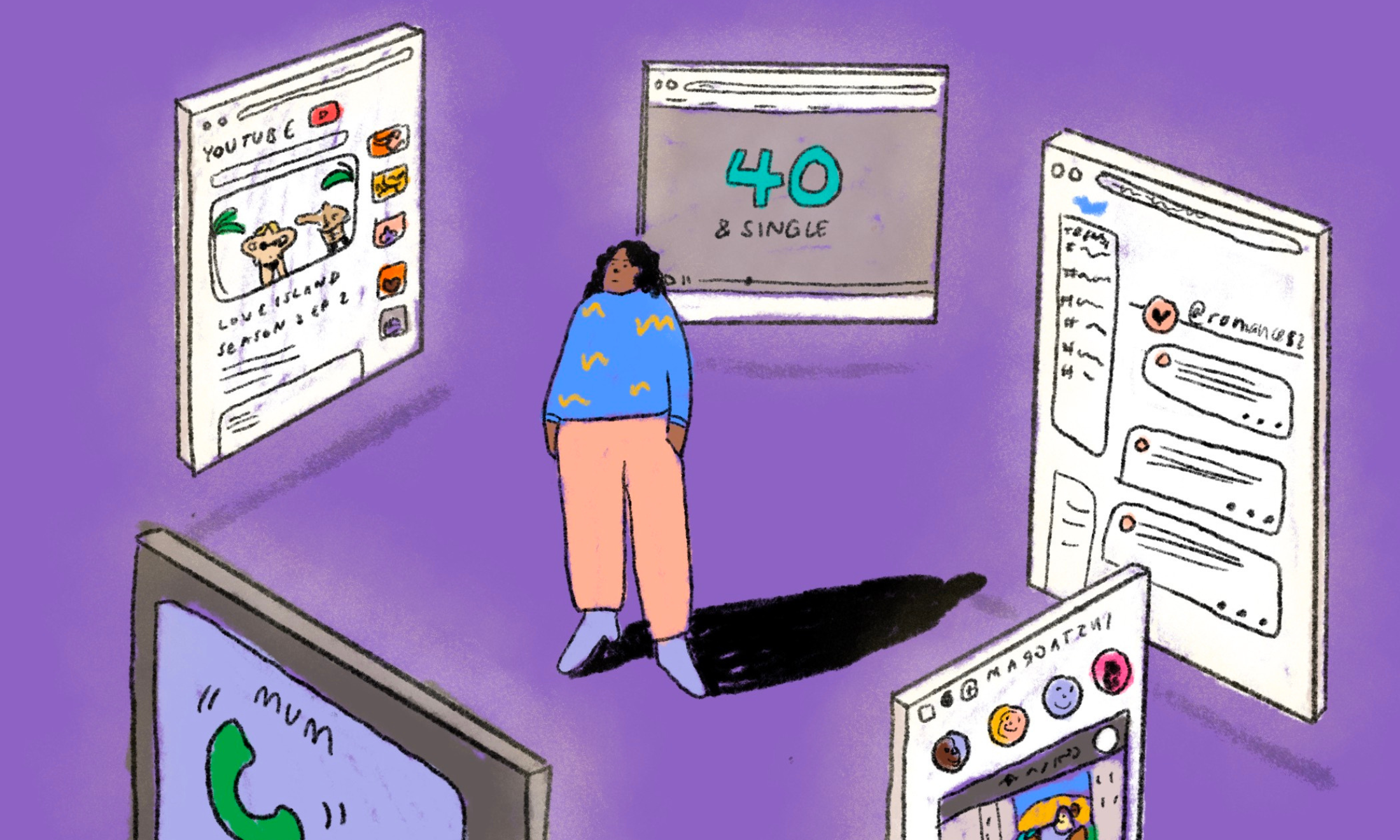Swipe Left: The lessons I learned from a painful first breakup
This month’s columnist recently experienced their first breakup – but the pain of the last few months has helped them embrace the mess of heartbreak as a teacher.
Xuanlin Tham
10 Nov 2022

Alex Smyth
In theory, of course, I understood how bad your first breakup was supposed to be. I’d seen people wrung dry by relationships ending before, but even at the time, I knew I was only looking across at them from the other side of a chasm. Aware that I was yet to share in this terrible, communal knowledge, I looked on with fear of its inevitable arrival on my doorstep. When my time comes, I wondered, just how much ruin will it bring?
I found out this summer – and no amount of macabre speculation could have prepared me for how astoundingly painful it was to be plunged into such loss. How viciously it ate into my flesh, how utterly unbearable it was from moment to moment. I was broken up with over the phone on the night of my 22nd birthday, and the weeks that followed such ingeniously cruel timing rendered me dazed and dysfunctional with grief. But they also carved me open. As I write this column months after the breakup, I’m still wading through the whirlwind of it, the unconquerable mess strewn across my floor. But another overwhelming emotion I find alongside the hurt is gratitude. Not for my ex and never for the cruelty, but for my friends, and the revelations they’ve helped me reach.
“The stubborn ache of the last few months became my most dedicated, if undesirable, teacher”
I struggle with the idea that some things can only be learned through pain – why can life not be gentle with us? – but against my will, the stubborn ache of the last few months became my most dedicated, if undesirable, teacher. The day after my birthday, I found myself on a friend’s couch, delirious with hurt and lack of sleep. I fell apart again and again in her presence over the next few weeks, and was terrified to discover how impossible it was to suppress the sobs that suddenly seized my throat and cut off my air. I hated these episodes; I could not stand the feeling of losing control. But my friend always showed me a kinder way to understand it. “This is your first experience of grief,” she would emphasise. “It’s so new. Your brain hasn’t learned how to process it yet.” The first difficult lesson it had to learn, when all I desperately wanted was to run across some kind of finish line, was patience.
And so much learning followed. With the kind of humour that accompanies being constantly exhausted by pain, I half-joked to another friend over text: “so many unwanted life lessons! i didn’t ask for this!”
I was attempting to plaster over the wounds cut open in my heart and body, casting around in the dark for temporary reprieve. I fixated on diagnosing exactly what had gone wrong in my relationship, tried to direct those efforts at patching things up with my ex, all while simultaneously seeking the validation of strangers’ attention on dating apps. I was confused by my actions, I said to my friend, and had no idea how to discern if I was doing the right thing. They texted me back with such clarity: “there is no right or wrong. you will simply learn and grow. i cannot tell you in what direction.”
“They texted me back with such clarity: “there is no right or wrong. you will simply learn and grow””
I was so frustrated that the onward march of time had refused to produce any proportionate emotional distance from my severed relationship; I still felt so winded from hitting the ground, my bones immovably crushed into place all jagged and wrong. But my friend’s words made visible to me the inadequacy of the scripts I’d punished myself for not abiding by. With this revelation arrived one more lesson: learning to release expectations of linearity while living with the unwelcome stranger of grief.
A few days later, another lesson awaited me. I had climbed Edinburgh’s Calton Hill with a few friends on a crisp, beautiful evening, and was recounting the circumstances of how my first deeply intimate, long-term relationship had just ended. As I spoke, one friend grew animated with shock and disbelief. My instinctive willingness to accept my ex’s reasoning for why he’d decided to hurt me with such precision (when asked why he chose my birthday to end things, he simply remarked that he “didn’t have time to do it tomorrow”), was met with her blunt rejection. Her anger cracked open my own, and allowed me to see it for the very first time: hot, ugly, swollen, necessary. By nature mellow and placating, I’d been instinctively trying to rehabilitate my ex’s image in my mind, and hadn’t even truly processed the wrong that had been done to me.
Anger felt raw and unfamiliar, but enlightening, too. With it came a receptiveness to simple truths. My best friend put it plainly and firmly: I did and do not deserve to be yelled at by someone who claimed to love me. I do not ever deserve to bear the brunt of anyone’s incapacity to manage their stress and frustration. As I continue to be thrown about by the push and pull that my ex wields over me – flung between false hope and wild hurt, reconciliation and breakdown – she patiently continues to show me what I’m sometimes incapable of seeing when so mired in confusion.
“Slowly, I’ve begun to gather the pieces of myself that had been blown apart. Now I start to reassemble my mass”
The aftermath of my breakup hasn’t gotten any more comprehensible, and I’ve since made perhaps inadvisable decisions. But I feel more capable of embracing the consequences, even though many are painful. I meet the philosophy of fucking around and finding out with a small, hard-earned measure of serenity. Slowly, I’ve begun to gather the pieces of myself that had been blown apart. Now I start to reassemble my mass: but only because every time I feel myself begin to disintegrate again, my friends are there to help hold me together and remind me what it feels like to find stillness, even momentarily.
For a while, I feared that my friends would one day start to blame me for my erraticism and my stumbling, heart-led pursuit of the wrong things. But they’ve only ever been confident that I’ll continue to survive the messes – both the ones I ask for and the ones I don’t. I don’t feel the need to make sense, because they’ve never demanded that of me. No more narrativising. Just allowing my feet to sink into the sand, witnessing the waves swell and crash and calm around me, and feeling this gratitude for their patience, steadiness, and love – even if I never manage to reach dry ground.
The contribution of our members is crucial. Their support enables us to be proudly independent, challenge the whitewashed media landscape and most importantly, platform the work of marginalised communities. To continue this mission, we need to grow gal-dem to 6,000 members – and we can only do this with your support.
As a member you will enjoy exclusive access to our gal-dem Discord channel and Culture Club, live chats with our editors, skill shares, discounts, events, newsletters and more! Support our community and become a member today from as little as £4.99 a month.

Swipe Left: I turned my bad dates into fun anecdotes but at an emotional cost

Swipe Left: dating inside and outside Muslim, Syrian and refugee boxes

Swipe Left: We’re in a cost of loving crisis and it’s draining my wallet and patience






